Tutorials

Please note that the tutorial schedule is preliminary and subject to change based on the number of interested delegates.
Abstract
There are major discussions worldwide on how the production of clean fuels, such as hydrogen, could facilitate the whole-energy system decarbonization. From a power system perspective, green hydrogen production results in massive grid integration of electrolyzers, that needs to be considered in power system analysis. This tutorial presents the modelling foundations of utility-scale hydrogen electrolyzers with alkaline and proton exchange membrane (PEM) technology, including electrolysis stack models, power electronics interface (PEI) and control, thermodynamics, hydrogen production formulations, and operational constraints in downstream hydrogen process/buffer, required for system-level dynamic studies in both transmission and distribution grids. Possible PEIs for grid integration of electrolyzers will be discussed, along with the associated control schemes in particular grid-forming load control. Finally, it will be discussed how and to what extent electrolysis plants could contribute to system stability and resilience, along with potential challenges and requirements in the context of real-life events and systems.
Course Outline (duration 4h)
- Hydrogen electrolyzers in power system studies: Introduction (15 minutes)
- Modelling of electrolysis stack (PEM and alkaline technologies) (30 minutes)
a. Electrolysis stack modelling modelling
b. Hydrogen production sub-model
c. Thermodynamics of electrolysis technologies
d. Stack voltage-current-efficiency nonlinearities10 minutes Q&A followed by 5 minutes break - Power-electronics interface and control of electrolyzers (45 minutes)
a. Grid-following control
b. Virtual synchronous machine control
c. Grid-forming load concept and its application to hydrogen electrolyzer control10 minutes Q&A followed by 5 minutes break - System dynamic support from electrolyzers: modelling, benefits, and challenges (45 minutes)
a. Frequency support services, including virtual inertia, fast frequency response, and frequency regulation
b. Voltage control and reactive power support
c. Grid-forming services10 minutes Q&A followed by 5 minutes break - Real-life examples and numerical/simulation-based exercises (45 minutes)
- Concluding remarks (15 minutes)
Instructors
Mehdi Ghazavi Dozein
The University of Melbourne, Australia
mehdi.ghazavidozein@unimelb.edu.au
Oriol Gomis-Bellmunt
Universitat Politecnica de Catalunya (UPC), Spain
oriol.gomis@upc.edu
Marc Cheah Mañe
Universitat Politecnica de Catalunya (UPC), Spain
marc.cheah@upc.edu
SHORT BIO
 | Mehdi Ghazavi Dozein received M.Sc. degree from University of Tehran and Ph.D. degree from The University of Melbourne. He is currently an Associate Lecturer in Power Systems at The University of Melbourne. His research interests include power system dynamics and stability, and modelling and control of inverter-based technologies. |
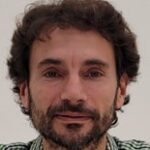 | Oriol Gomis-Bellmunt received the degree in industrial engineering from the School of Industrial Engineering of Barcelona (ETSEIB), Technical University of Catalonia (UPC), Barcelona, Spain, in 2001 and the Ph.D. degree in electrical engineering from the UPC in 2007. In 1999, he joined Engitrol S.L. where he worked as Project Engineer in the automation and control industry. Since 2004, he has been with the Electrical Engineering Department, UPC where he is a Professor and participates in the CITCEA-UPC Research Group. Since 2020, he is an ICREA Academia researcher. In 2022, he co-founded the start-up eROOTS focused on the analysis of modern power systems. His research interests include the fields linked with electrical machines, power electronics, and renewable energy integration in power systems. |
 | Marc Cheah Mañe received the degree in industrial engineering from the School of Industrial Engineering of Barcelona (ETSEIB), Universitat Politecnica de Catalunya (UPC), Barcelona, Spain, in 2013, and the PhD degree in electrical engineering from Cardiff University, Cardiff, the U.K. in 2017. From 2017 to 2020 he was a research associate in CITCEA-UPC, Barcelona, Spain. Since March 2020 he is a Lecturer under the Serra Hunter program at the Electrical Engineering Department of UPC. Since April 2022, he is also a co-founder of eRoots, which is a spin-off company of CITCEA-UPC specialized in innovative tools for modern power system analysis. His research interests include power systems with power electronics, high-voltage direct current systems, wind and photovoltaic generation. |
Abstract
The ongoing decarbonization of power systems is altering the fundamental structure of system planning and operation by increasing the penetration of renewable energy resources (RESs), while forecasting an increase in the asset utilization of high electrification of transportation and efficient heating facilities. To meet the carbon budgets, the pace of decarbonization in deregulated markets needs to be significantly accelerated. These transitions, however, present crucial techno-economic challenges. More flexibilities are required to balance the less predictable and controllable RESs. A large number of small-scale distributed energy resources (DERs) are located and operated in a distributed manner, which may increase the challenges of managing them. Furthermore, privacy concerns need to be addressed due to the massive amount of data communicated by the decentralized power systems. In this context, this tutorial will first overview various kinds of approaches for power system decarbonization, then introduce advanced artificial intelligence (AI) tools, and finally focus on the applications of peer-to-peer (P2P) energy trading and electric vehicles (EVs).
Course Outline (duration 4h)
- Background (1 hour)
a. Power and energy systems (20 mins)
b. Decarbonization framework (20 mins)
c. Electricity market design (20 mins) - AI-driven tools (1 hour)
a. Data-driven reinforcement learning methods (20 mins)
b. Markov decision process and Markov game (10 mins)
c. Single-/Multi-agent reinforcement leaning methods (30 mins) - Energy system applications (1 hour and 30 mins)
a. P2P energy trading for large-scale prosumers (30 mins)
b. P2P energy trading for multi-vector microgrids (30 mins)
c. EV ancillary-service provisions in transport-power networks (30 mins) - Conclusion and future work (30 mins)
a. Conclusion (10 mins)
b. Future work (10 mins)
c. Questions and answers (10 mins)
Instructors
Dawei Qiu
The Imperial College London, UK
d.qiu15@imperial.ac.uk
Shengrong Bu
Brock University, Canada
sbu@brocku.ca
Zhu Han
University of Houston, USA
hanzhu22@gmail.com
SHORT BIO
 | Dawei Qiu (S’18-M’20) received the Ph.D. degree in Electrical Engineering from Imperial College London, UK, in 2020. He is currently employed as a Research Associate in the Department of Electrical and Electronic Engineering at Imperial College London. His research focuses on the development and application of decentralized and market-based approaches for the electricity market, peer-to-peer energy trading, multi-energy system, microgrid resilience, and vehicle-to-grid flexibility. In particular, he also has a strong background in game theoretic modeling and data-driven reinforcement learning approaches. Dr. Qiu has strongly contributed to several European Commission and EPSRC research projects, focused on energy market modelling and resilience analysis: EU’s Horizon 2020 projects “TradeRES”, “MERLON”; EPSRC projects including “NetworkPlus”, “IDLES”, “Technology Transformation to Support Flexible and Resilient Local Energy Systems”. |
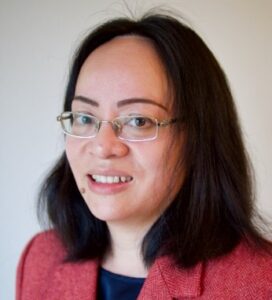 | Shengrong Bu (S’05-M’12) received her Ph.D. degree in Electrical and Computer Engineering from Carleton University, Canada in 2012. From 2014 to 2021, she was a Lecturer with the James Watt School of Engineering, University of Glasgow, UK. Currently, she is an Associate Professor at Brock University, Canada. Her research interests include multi-energy microgrids, smart grids, future wireless networks, cyber security, deep reinforcement learning, and big data analytics. Dr. Bu was a recipient of three best paper awards at IEEE International conferences. Her work has been supported by EPSRC (UK) and NSERC (Canada). Highlights of her professional activities include duties as a peer reviewer for EPSRC and Carnegie Trust, an Associate Editor for Wireless Networks (Springer), a Topic Editor for Energies and the TPC Co-Chair for seven international conferences/workshops or conference symposiums. Dr. Bu was featured in the Women in Energy Transformation Series 2022-2024, as one of Canada’s most inspiring climate leaders. Promoting engineering to younger girls and supporting junior female researchers are a passion of hers, and she has been involved with Ontario Go Eng Girl in Canada, Monster Confidence in UK, and N2Women as a Mentoring Co-Chair. |
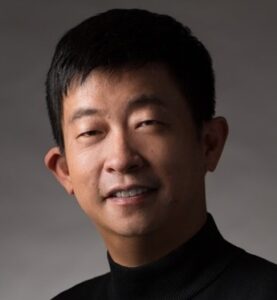 | Zhu Han (S’01–M’04-SM’09-F’14) received the B.S. degree in electronic engineering from Tsinghua University, in 1997, and the M.S. and Ph.D. degrees in electrical and computer engineering from the University of Maryland, College Park, in 1999 and 2003, respectively. From 2000 to 2002, he was an R&D Engineer of JDSU, Germantown, Maryland. From 2003 to 2006, he was a Research Associate at the University of Maryland. From 2006 to 2008, he was an assistant professor at Boise State University, Idaho. Currently, he is a John and Rebecca Moores Professor in the Electrical and Computer Engineering Department as well as in the Computer Science Department at the University of Houston, Texas. Dr. Han’s main research targets on the novel game-theory related concepts critical to enabling efficient and distributive use of wireless networks with limited resources. His other research interests include wireless resource allocation and management, wireless communications and networking, quantum computing, data science, smart grid, security and privacy. Dr. Han received an NSF Career Award in 2010, the Fred W. Ellersick Prize of the IEEE Communication Society in 2011, the EURASIP Best Paper Award for the Journal on Advances in Signal Processing in 2015, IEEE Leonard G. Abraham Prize in the field of Communications Systems (best paper award in IEEE JSAC) in 2016, and several best paper awards in IEEE conferences. Dr. Han was an IEEE Communications Society Distinguished Lecturer from 2015-2018, AAAS fellow since 2019, and ACM distinguished Member since 2019. Dr. Han is a 1% highly cited researcher since 2017 according to Web of Science. Dr. Han is also the winner of the 2021 IEEE Kiyo Tomiyasu Award, for outstanding early to mid-career contributions to technologies holding the promise of innovative applications, with the following citation: “for contributions to game theory and distributed management of autonomous communication networks.” |
- Abstract
Digitalization is a megatrend that affects and transforms societal, economic, and environmental processes on a global scale.
Driven by a combination of technological advances and evolving energy policy and regulation, digitalization also affects the operation and planning of the energy sector.
This tutorial provides a comprehensive, detailed overview over digitalization effects with emphasis on power systems, including data markets, emerging technologies, use cases, and challenges.
Course Outline (duration 4h)
- Background: Digitalization phenomena, drivers and its value proposition.
- Data and infrastructure: Components, energy demand and efficiency.
- Applications: Use cases, risks and benefits of digital technologies and business models, data valuation and markets.
- Perspectives: Current decision-maker perceptions on digital energy systems: outcomes of an international UN survey.
- Policy design: e.g., for cyber security, artificial intelligence, digital platforms and regulatory sandboxes.
Instructors
Fabian Heymann
Swiss Federal Office of Energy / École polytechnique fédérale de Lausanne
fabian.heymann@bfe.admin.ch
Andrei Covatariu
United Nations Economic Commission for Europe
andrei.covatariu@gmail.com
Carla Gonçalves
Senior Researcher at the Centre for Power and Energy Systems in INESC TEC, Portugal
carla.s.goncalves@inesctec.pt
Davide Fioriti
University of Pisa
davide.fioriti@unipi.it
Hrvoje Keko
KONČAR Digital
Hrvoje.keko@koncar.hr
SHORT BIO
 | Dr. Fabian Heymann is Lecturer on “Digitalization in electricity systems” at École polytechnique fédérale de Lausanne (EPFL) and Digital Innovation Specialist at the Swiss Federal Office of Energy. He is a selected member of the UN ECE Taskforce on Digitalization in Energy and CIGRE WG C2.42. Before, he held positions as Advisor at the European Network of Transmission System Operators for Electricity (ENTSO-E) in Brussels and as researcher at INESC TEC (Porto, Portugal) as well as the MIT Institute for Data, Systems, and Society (IDSS, Cambridge, MA). |
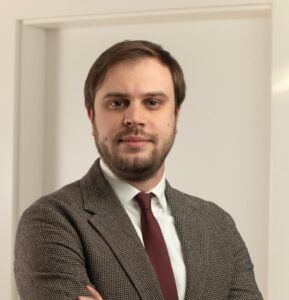 | Andrei Covatariu is the Co-Chair of the Task Force on “Digitalization in Energy” at the United Nations Economic Commission for Europe (UNECE). In the past he was the Digital Manager at Enel Romania, promoting digitalization across the companies’ business lines. He is a consultant for Public Power Corporation, acting as a Climate Policy Advisor for the CEO. Andrei is a Non-resident Scholar in the Climate and Water Program, at the Middle East Institute (US), a Senior Research Associate at Energy Policy Group (Romania), and an Associate Lecturer at the Bucharest University of Economic Studies. Andrei holds bachelor’s and master’s degrees in nuclear engineering, a master’s in business administration, and a master’s in public policy at the Blavatnik School of Government. |
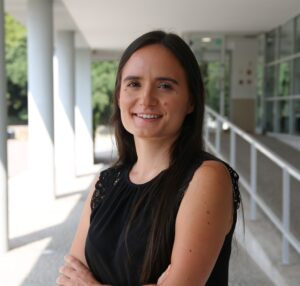 | Dr Carla Gonçalves is a Senior Researcher at the Centre for Power and Energy Systems in INESC TEC (Porto, Portugal). She holds Ph.D. and M.Sc. degrees in applied mathematics. From 2015 to 2019, she was involved in a wide range of energy forecast consulting collaborations between INESC TEC and the industry. Since then, she was part of the H2020 Smart4RES project, and more recently the European ENERSHARE project. Her research has been focused on probabilistic and collaborative forecasting methods, with a special emphasis on renewable energies, data privacy, and data markets. |
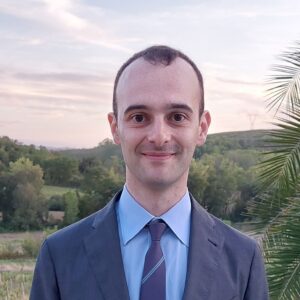 | Davide Fioriti is Assistant Professor at the University of Pisa on Energy Economics and Technologies and co-director of the PyPSAmeetsEarth initiative. He is expert in large- and small-scale energy modelling, started with a doctoral thesis on planning and operation methods for rural electrification by mini-grids, continued ever since, and then including global scale energy modelling using PyPSA-based tools. He is active in the EU-funded LEAP-RE project on microgrid modelling and in 2018 he was a visiting scholar at Massachusetts Institute of Technology. |
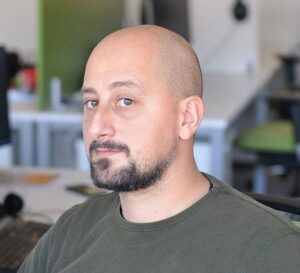 | Hrvoje Keko is an experienced engineer, researcher, consultant and developer. His work and life path spans several countries and continents and his career is a blend of academic, consulting and industry experience. Currently, he leads R&D projects in KONČAR Digital. He is passionate in open source, open standards, semantic interoperability, cyber security and energy democratization and firmly holds digitalization as a key pillar of energy transition. |
Abstract
As largely acknowledged, the widespread integration of converter-interfaced distributed energy resources (DERs) has triggered fundamental changes in the operation of power systems and, as a matter of fact, the integration of power electronic devices is at the base of fundamental research on the topics of power systems’ stability, power quality and control. In a traditional power system, dynamics are mainly associated with synchronous generators and their controls responsible to maintain frequency and voltage through speed governors and automatic voltage regulators. Increased penetration of converter-interfaced DERs has a considerable impact on these controls requiring realistic, sophisticated and computationally-tractable DERs models as essential tools for the study of the stability and power quality of converter-dominated grids.
Within this context, the tutorial discusses the most recent developments regarding modeling strategies and frameworks applied to converter-dominated grids with particular focus on static analysis, harmonic power flow, small-signal stability and AC/DC interactions in converter-interfaced resources.
Course Outline (duration 4h)
Part 1: Modeling and stability in converter-dominated grids – 1 hours and 30 minutes
A. Fundamentals of modeling and control of grid-connected converters – 30 minutes
B. Nonlinear state-space modeling of power electronics-based power systems – 30 minutes
C. Stability analysis of power electronics-based power systems considering static and dynamic aspects – 30 minutes
Coffee break – 15 minutes
Part 2: Harmonic Power Flow in converter-dominated grids – 1 hours and 30 minutes
A. Harmonic power flow analysis in converter-dominated grids – 45 minutes
B. Impact of converter synchronization and DC voltage dynamics on harmonic propagation – 45 minutes
Questions and answers – 15-30 minutes
Instructors
Federico Cecati
Fraunhofer ISIT
federico.cecati@isit.fraunhofer.de
Marco Liserre
Chair of Power Electronics, Kiel University, Germany
ml@tf.uni-kiel.de
Mario Paolone
Chair of the Distributed Electrical Systems Laboratory, EPFL, Swiss
mario.paolone@epfl.ch
Johanna Becker
Chair of the Distributed Electrical Systems Laboratory, EPFL, Swiss
johanna.becker@epfl.ch
SHORT BIO
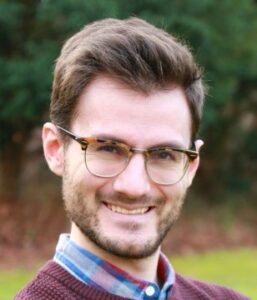 | Federico Cecati received the B.Sc and M.Sc. (Hons.) degree in Automatic Control Engineering from the University of L’Aquila, L’Aquila, Italy in 2015 and 2017, respectively. Since 2018 he is a PhD researcher at the Chair of Power Electronics, Kiel University, Kiel, Germany. From September 2020 to February 2021 he was a guest researcher at the Institute of Energy Technology, Aalborg University, Aalborg, Denmark. His research interests include nonlinear modelling, stability analysis, harmonic propagation and control in power electronics-based power systems. |
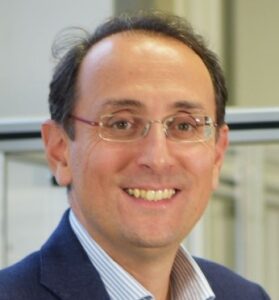 | Marco Liserre is Full Professor and he holds the Chair of Power Electronics at Kiel University (Germany). He has published 500 technical papers (1/3 of them in international peer-reviewed journals) and a book, receiving more than 35000 citations. Marco Liserre is listed in ISI Thomson report “The world’s most influential scientific minds” from 2014. He has been awarded with an ERC Consolidator Grant for the project “The Highly Efficient And Reliable smart Transformer (HEART), a new Heart for the Electric Distribution System”. He is member of IAS, PELS, PES and IES. He has been serving all these societies in different capacities. He has received the IES 2009 Early Career Award, the IES 2011 Anthony J. Hornfeck Service Award, the 2014 Dr. Bimal Bose Energy Systems Award, the 2011 Industrial Electronics Magazine best paper award in 2011 and 2020 and the Third Prize paper award by the Industrial Power Converter Committee at ECCE 2012, 2012, 2017 IEEE PELS Sustainable Energy Systems Technical Achievement Award and the 2018 IEEE-IES Mittelmann Achievement Award. |
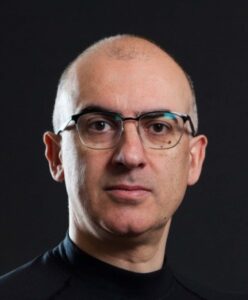 | Mario Paolone received the M.Sc. (Hons.) and Ph.D. degrees in electrical engineering from the University of Bologna, Italy, in 1998 and 2002. From 2005 to 2011, he was an Assistant Professor in power systems with the University of Bologna. Since 2011, he has been with the Swiss Federal Institute of Technology, Lausanne, Switzerland, where he is Full Professor and the Chair of the Distributed Electrical Systems Laboratory. His research interests focus on power systems with particular reference to real-time monitoring and operational aspects, power system protections, dynamics and transients. Dr. Paolone’s most significant contributions are in the field of PMU-based situational awareness of active distribution networks (ADNs) and in the field of exact, convex and computationally efficient methods for the optimal planning and operation of ADNs. Dr. Paolone is Fellow of the IEEE and was the founder Editor-in-Chief of the Elsevier journal Sustainable Energy, Grids and Networks. |
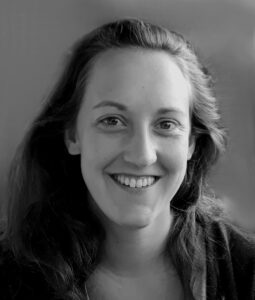 | Johanna Becker received her B.Sc. degree in Microsystems Engineering from Freiburg University, Germany in 2015 and the M.Sc. degree in Electrical Engineering from the Swiss Federal Institute of Technology of Lausanne (EPFL), Lausanne, Switzerland in 2019. She is currently pursuing a Ph.D. degree at the Distributed Electrical System Laboratory, EPFL, with a focus on robust control and stability assessment of active distribution systems in presence of harmonics. |
Abstract
The proliferation of renewable energy resources in transmission and distribution networks towards resilient carbon-neutral power systems highlights the growing need for well-rounded training and education of a large workforce of engineers to tackle the emerging challenges and needs of renewable-rich power systems. This tutorial brings together experience and expertise from several European partners of the newly funded Horizon Europe “Transition to sustainable future through training and education” (TRANSIT) project to provide novel training and education methodologies, tools and technological solutions on renewable energy systems. It will first introduce the challenges and needs of renewable-dominated power systems in the context of the European Green Deal for clean energy transition, and then it will provide holistic training on innovative approaches using state-of-the-art tools and solutions based on a wide range of power system software platforms (such as Typhoon HIL, DIgSILENT PowerFactory, and Matlab/Simulink), offering a unique opportunity to the participants for hands-on experience on renewable energy system simulation, modelling and planning.
Course Outline (duration 8h)
Timeslot: 09:00-09:15
Topic: Introduction to Tutorial: Outline, Aims and Objectives
Presenter: Mathaios Panteli, University of Cyprus
Delivery Mode: PowerPoint Slides
Timeslot: 09:15-09:45
Topic: Towards Resilient Carbon-Neutral Power Systems: Challenges, Needs and Opportunities
Presenter: Prof Jovica Milanovic, The University of Manchester, United Kingdom
Delivery Mode: PowerPoint Slides
Timeslot: 09:45-10:30
Topic: Τhe European Green Deal for clean energy transition: Design and Integration of Renewable Energy Sources
Presenter: Dragan Vuckovic, University of Nis, Faculty of Electronic Engineering, Serbia
Delivery Mode: PowerPoint Slides
Timeslot: 10:30-10:45
Topic: Summary and Questions
Moderator: Mathaios Panteli, University of Cyprus
Delivery Mode: Open Discussion
10:45-11:00 – Coffee Break
Timeslot: 11:00-12:30
Topic: Introduction to Real-Time Simulations with Typhoon HIL: Schematic Editor, HIL SCADA, analog and digital IOs
Presenter: José Miguel Riquelme, Polytechnic University of Madrid
Delivery Mode: Hands-on demonstration in Typhoon HIL Control Center software
12:30-13:00 – Lunch break
Timeslot: 13:00-14:00
Topic: EMT simulation and modelling of grid-following inverters for renewable energy systems Presenter: Lenos Hadjidemetriou, University of Cyprus
Delivery Mode: Hands-on demonstration in Matlab/Simulink
Timeslot: 14:00-15:30
Topic: EMT modelling and simulation of grid-forming converter control
Presenter: Matej Krpan, University of Zagreb, Croatia
Delivery Mode: Hands-on demonstration in DIgSILENT PowerFactory
15:30-15:45 – Coffee Break
Timeslot: 15:45-16:45
Topic: Transmission expansion planning under long-term uncertainty: stochastic optimization and the role of smart investment options
Presenter: Stefan Borozan, Imperial College London and Ss. Cyril and Methodius University in Skopje
Delivery Mode: PowerPoint Slides & Interactive Activities
Timeslot: 16:45-17:00
Topic: Questions and Closing Remarks
Moderator: Mathaios Panteli, University of Cyprus
Delivery mode: Open Discussion
Instructors
Jovica Milanovic
The University of Manchester, UK
jovica.milanovic@manchester.ac.uk
Dragan Vuckovic
University of Nis, Faculty of Electronic Engineering, Serbia
dragan.vuckovic@elfak.ni.ac.rs
José Miguel Riquelme
Polytechnic University of Madrid, Spain
jm.riquelme@upm.es
Lenos Hadjidemetriou
University of Cyprus, Cyprus
hadjidemetriou.lenos@ucy.ac.cy
Matej Krpan
University of Zagreb, Croatia
matej.krpan@fer.fr
Stefan Borozan
Imperial College London and Ss. Cyril and Methodius University in Skopje
Mathaios Panteli
University of Cyprus
panteli.mathaios@ucy.ac.cy
SHORT BIO
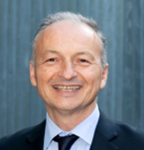 | Prof Jovica V. Milanović (Fellow, IEEE) is a Professor of Electrical Power Engineering and Deputy Head of Department with the Department of Electrical and Electronic Engineering, The University of Manchester, Manchester, U.K. |
 | Dragan Vuckovic is the Head of the Laboratory of Electrical Installations and Illumination at the Faculty of Electronic Engineering, University of Nis. He is a member of the Serbian Standardisation Institute and a member of the executive board of the Serbian Lighting Association. He participated in several international and national research projects in energy efficiency and renewable energy domains. His research activities are in the areas of lighting, energy efficiency, renewable energy and power quality. |
 | Jose Miguel Riquelme-Dominguez received the degree in electrical engineering from the Universidad de Sevilla, Seville, Spain, in 2015. He is currently pursuing the Ph.D. degree with the Universidad Politécnica de Madrid, Madrid, Spain. His research interests include grid connected photovoltaic systems and power system stability and control. |
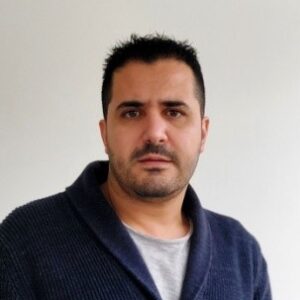 | Lenos Hadjidemetriou is currently a Research Lecturer at the KIOS Research and Innovation Center of Excellence, University of Cyprus. He received the Diploma in Electrical and Computer Engineering in 2010 from the National Technical University of Athens, Greece, and his Ph.D. degree in Electrical Engineering in 2016 from the University of Cyprus, Cyprus. His research interests include smart grids, grid integration of renewable energy systems, energy storage systems, control of power electronics, micro-grids, smart buildings, digital twins, and cyber-security aspects in smart grids. |
 | Matej Krpan received the bachelor’s and master’s degrees in electrical power engineering from the Faculty of Electrical Engineering and Computing, University of Zagreb, in 2014 and 2016, respectively, where he is currently pursuing the Ph.D. degree in electrical engineering with the Department of Energy and Power Systems. His research interests include power system dynamics, stability, and control of low-inertia power systems. |
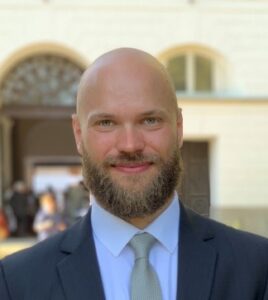 | Stefan Borozan received the B.Sc. degree in electrical engineering and information technologies from Ss. Cyril and Methodius University in Skopje in 2017 and the M.Sc. degree in future power networks from Imperial College London in 2018. He is currently pursuing the Ph.D. degree in the Control and Power group at Imperial College London. Stefan also holds a visiting research associate position with the Faculty of Electrical and Electronic Engineering in Skopje and has previous experience in low and medium voltage distribution grid planning at the DNO Elektrodistribucija DOOEL (part of EVN Group) in North Macedonia. |
 | Mathaios Panteli holds an Assistant Professor position within the Department of Electrical and Computer Engineering, University of Cyprus, since January 2021. Prior to joining UCY, he was a Lecturer at the Power and Energy Division of The University of Manchester, serving as the Deputy Lead of the Sustainable Energy Systems research cluster. His academic qualifications include an M.Eng. degree from Aristotle University of Thessaloniki, Greece, in 2009, and a Ph.D. degree in Electrical Power Engineering from The University of Manchester, U.K., in 2013. |
Abstract
Today, a major share of the electronic converters is controlled under the presumption that they are connected to a strong AC voltage with a given magnitude and frequency in such a way that the converter can exchange an active and reactive power thanks to a current control. This control strategy of the converter is known as the grid-following control. The limitation of this solution has been well documented in the literature such as the challenge related to synchronization in weak grid. The grid forming control is proposing a new way to connect the power electronic converters which is supposed to solve these issues. The proposed tutorial is covering a wide overview about this type of control starting from the origin of the grid forming control in order to define a strong classification for the various types of control. A clear distinction will be made between grid forming control with or without current loop and the consequence in term of small signal stability will be addressed.
Course Outline (duration 8h)
First part : Theoretical presentation 4h
1 – Introduction (15 minutes)
2 – Description of the main types of control (30 minutes)
3 – Small signal stability analysis of different types of grid forming control (30 minutes)
4 – Current limitation in a converter driven by a grid-forming control – Transient stability (15 minutes)
5 – Implementation of the grid-forming converter on a VSC and an MMC (20 minutes)
6 – Different types of grid-forming application (20 minutes)
7 – Testing grid forming capability, pilot projects and barriers for an industrial deployment (30 minutes)
8 – The integration of grid forming capabilities into connection network codes (40 minutes)
9 – Conclusion and perspectives (10 minutes)
Second part : Practical exercises 4h
Practical exercise 1: Study of the inertial effect brought by a grid forming converter (45 minutes)
Practical exercise 2: Study of an HVDC link (45 minutes)
Practical exercise 3 : Small signal stability analysis (1h30)
Instructors
Xavier Guillaud
Centrale Lille, France
xavier.guillaud@centralelille.fr
Frederic Colas
ENSAM- Lille, France
frederic.colas@ensam.eu
Carmen Cardozo
RTE, France
carmen.cardozo@rte-france.com
SHORT BIO
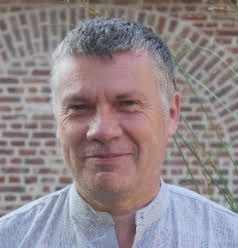 | Xavier Guillaud received his Ph.D from University of Lille in 1992 and joined the Laboratory of Electrical Engineering and Power Electronic (L2EP) in 1993. He has been professor in Ecole Centrale of Lille since 2002. First, he worked on modeling and control of power electronic systems. Then, he studied the integration of distributed generation and especially renewable energy in the power system. Nowadays, he is focused on the integration of high voltage power electronic converters in the transmission system. He is involved on several projects about power electronic on the grid within European projects and a large number of projects with French electrical utilities. |
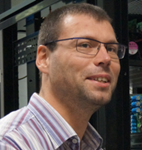 | Frederic Colas received a PhD in control system in 2007 from Ecole Centrale de Lille (France). Frédéric Colas is a member of the Laboratory of Electrical Engineering (L2EP) in Lille and is a Research Engineer at Arts et Métiers. His field of interest includes the integration of dispersed generation systems in electrical grids, advanced control techniques for power system, integration of power electronic converters in power systems and hardware-in-the-loop simulation. |
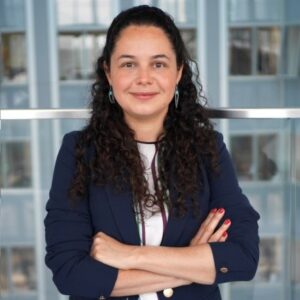 | Carmen Cardozo holds an electrical engineering degree from Simon Bolivar University, Venezuela, and a M.S. in Energy Physics from ENS Cachan, France. She received a PhD in Electrical Eng. in 2016, before joining the R&D department of RTE, the French TSO. Her research topics include the modelling and control of power electronic interfaced resources and HVDC link for power system stability assessment. |
Abstract
As countries worldwide accelerate their efforts to meet net-zero carbon emission targets, integrated energy systems and sector coupling are seen as a key means towards whole-system decarbonization. In particular, hydrogen and especially “green” hydrogen obtained from electrolysis and renewable electricity could play a major role thanks to its versatility to operate across multiple energy sectors. Besides direct applications of
green hydrogen for industry and export, promising applications are as a form of both short-term and long-term storage options to accommodate more and more electricity from variable renewable energy sources, in case by injection of green hydrogen into existing gas networks, or development of new, dedicated hydrogen transport and storage infrastructure.
Overall, integrated electricity, gas and hydrogen systems (IEGHS) will interact with each other with greater and greater complexity, which calls for advanced models, frameworks, and solution techniques for the operation and planning of such future integrated energy systems and the underlying multi-energy infrastructure.
Based on the extensive experience of the authors with research and industry projects around the world, this tutorial will explore the techno economic modelling of IEGHS from transmission to distribution, with a closer look into their integrated operation and planning. This tutorial will also introduce state-of-the-art solution techniques to solve such complex problems in a scalable fashion.
Course Outline (duration 4h)
1. Introduction and motivation (15 minutes)
2. Mathematical modelling of IEGHS (50 minutes)
3. Q&A (5 minutes)
4. Sequential linear programming for operational problems in IEGHS (30 minutes)
5. Q&A (5 minutes)
6. Optimal integrated planning of electricity and hydrogen infrastructure for large-scale renewable energy transport and storage (30 minutes)
7. Live demo of an IEGHS Modelling Tool developed by the presenters (20 minutes)
8. Q&A (5 minutes)
9. Aggregated flexibility from multiple electrolyzers in distribution-level IEGHS (30 minutes)
10. Q&A (5 minutes)
11. Techno-economic modelling of integrated electricity-hydrogen energy hubs and virtual power plants (30 minutes)
12. Q&A (5 minutes)
13. Concluding remarks (10 minutes)
Instructors
Sleiman Mhanna
The University of Melbourne, Australia
sleiman.mhanna@unimelb.edu.au
Pierluigi Mancarella
The University of Melbourne, Australia
pierluigi.mancarella@unimelb.edu.au
SHORT BIO
 | Dr. Sleiman Mhanna received his PhD in electrical engineering from the University of Sydney in 2016 and is now a Senior Research Fellow at The University of Melbourne working on designing mathematical models and scalable algorithms for the operation and planning of integrated electricity, gas, and hydrogen systems. The studies he has conducted over the past three years, which include electrification of residential heating demand and modelling of hydrogen blending in gas transmission networks, are currently used by Future Fuels Cooperative Research Centre (FF CRC) and its industry partners in their policy initiatives and decarbonisation roadmaps. He is also a senior member at IEEE and an associate editor for IEEE Transactions on Smart Grid and for IEEE Power Engineering Letters. |
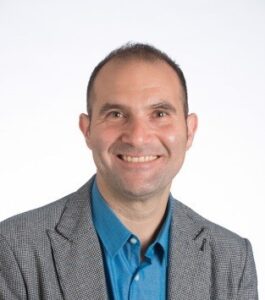 | Prof. Pierluigi Mancarella is Chair Professor of Electrical Power Systems at the University of Melbourne, Australia, and Professor of Smart Energy Systems at the University of Manchester, UK. His key research interests include techno-economic modelling and analysis of multi-energy systems, grid integration of renewables and distributed energy resources, energy infrastructure planning under uncertainty, and security, reliability, and resilience of low-carbon networks. Pierluigi is a Fellow of the IEEE, an IEEE Power and Energy Society Distinguished Lecturer, and an Editor of the IEEE Transactions on Power Systems and of the IEEE Transactions on Energy Markets, Policy and Regulation. |
Abstract
The module discusses the dynamic analysis and operation of low-inertia grids, that grid with high penetration of converter-interfaced generation. The module is organized into two parts. The first part focuses on operation and control, whereas the second part deals with modelling and stability analysis. The module blends industry experience and recent trends in academic research. The industry point of view is represented by EirGrid that operates the Irish grid up to 75% non-synchronous instantaneous power generation and DIgSILENT that will share their experience with the implementation of converter and their controllers in a power system software tool. The academic presentations discuss state-of-the-art concepts on the modelling of security constrained optimal power flow problems for low-inertia systems; as well as recent advances in the synchronization stability and modelling of grid-connected converters and their controllers. All presentations include several illustrative examples based on both benchmark and real-world systems.
Course Outline (duration 4h)
Introduction (5 min)
Blending optimization methods with dynamic analysis for low-inertia power systems (45 min)
Dynamic Response of Inverter-based Resources in Ireland and Northern Ireland Power Systems (45 min)
Break (10 min)
Distributed generation modeling, simulation and system studies using DIgSILENT PowerFactory (45 min)
Synchronization stability of grid-connected converters (45 min)
Complex modelling of converter-interfaced generation (40 min)
Closure (5 min)
Instructors
Petros Aristidou
Cyprus University of Technology, Cyprus
petros.aristidou@cut.ac.cy
Junru Chen
Xinjiang University, China
junru.chen@xju.edu.cn
Ahsan Murad
DIgSILENT GmbH, Germany
A.Murad@digsilent.de
Taulant Kërçi
EirGrid, TSO, Ireland
Taulant.Kerci@EirGrid.com
Federico Milano
University College Dublin, Ireland
federico.milano@ucd.ie
SHORT BIO
 | Petros Aristidou got his Diploma from the Department of Electrical & Computer Engineering at the National Technical University of Athens (Greece) in 2010 and his PhD at the University of Liege (Belgium) in 2015. During his PhD, he worked on domain decomposition methods for real-time dynamic security assessment of transmission systems. He took a position as a Postdoctoral Researcher at the Power Systems Laboratory at ETH Zurich (Switzerland) for one year, working on developing new control algorithms for future low-inertia power systems. Between 2016-2019 he was a Lecturer at the University of Leeds (UK), where he led the Smart Grids Lab. Since January 2020, he has been a Lecturer in Sustainable Power Systems at the Cyprus University of Technology. His expertise is in power system dynamics, planning, and control, and he has participated in several working groups looking into the challenges of low-inertia systems. Recent projects and publications can be found at https://sps.cut.ac.cy |
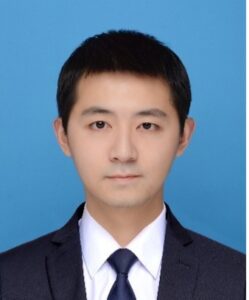 | Junru Chen (S’17, M’19) received the Ph.D. in 2019 and the ME Electrical Energy Engineering in 2016 from University College Dublin, Dublin, Ireland. He was a Senior Researcher in University College Dublin and visiting scholar in Aalborg University, Denmark in 2020. He was a visiting doctoral student in Kiel University, Germany in 2018 and Tallinn University of Technology, Estonia, in 2019. Since 2020 he is an Associate Professor at Xinjiang University, China. He has been honored with the 2019 Chinese Government Award for Outstanding Self-financed Students Abroad. His current research interests include power electronics control, modeling, stability, and application. |
 | Ahsan Murad received a B.Sc. degree in electrical engineering from IUT, Bangladesh, in 2009 and a double M.Sc. degree in Smart Electrical Networks and Systems from KU Leuven, Belgium, and KTH, Sweden, in 2015. He completed his Ph.D. with the Department of Electrical and Electronic Engineering, University College Dublin, Ireland, in 2019. He is currently working with DIgSILENT GmbH, Germany as an application engineer. |
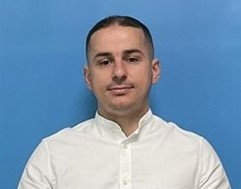 | Taulant Kërçi received the B.Sc. and M.Sc. degrees in electrical engineering from the Polytechnic University of Tirana, Albania, in 2011 and 2013, respectively, and the Ph.D. degree in electrical engineering from University College Dublin, Ireland, in November 2021. From June 2013 to October 2013, he was with the Albanian DSO with the metering and new connection department. From November 2013 to January 2018, he was with the Albanian TSO at the SCADA/EMS office. In September 2021, he joined the Irish TSO, EirGrid plc, where he is currently a senior lead engineer. He is (co-)author of 1 book chapter and more than 20 journals/conferences papers. His research interests include power system operations and dynamics, as well as co-simulation of power systems and electricity markets. |
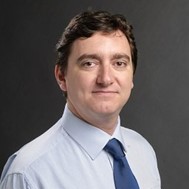 | Federico Milano received from the University of Genoa, Italy, the Ph.D. in Electrical Engineering in 2003. In 2013, he joined the UCD School of Electrical and Electronic Engineering, where he is currently a full professor. He has authored more than 300 publications, and 8 books. He is an IEEE Fellow, an IET Fellow, a member of the IEEE PES Distinguished Lecturer Program, the chair of the IEEE Power System Stability Controls Subcommittee, Chair of the Technical Programme Committee of the PSCC 2024, Senior Editor of the IEEE Transactions on Power Systems, a member of the Cigré Irish National Committee, and Editor in Chief of the IET Transmission, Generation & Distribution. |
There are major discussions worldwide on how the production of clean fuels, such as hydrogen, could facilitate the whole-energy system decarbonization. From a power system perspective, green hydrogen production results in massive grid integration of electrolyzers, that needs to be considered in power system analysis. This tutorial presents the modelling foundations of utility-scale hydrogen electrolyzers with alkaline and proton exchange membrane (PEM) technology, including electrolysis stack models, power electronics interface (PEI) and control, thermodynamics, hydrogen production formulations, and operational constraints in downstream hydrogen process/buffer, required for system-level dynamic studies in both transmission and distribution grids. Possible PEIs for grid integration of electrolyzers will be discussed, along with the associated control schemes in particular grid-forming load control. Finally, it will be discussed how and to what extent electrolysis plants could contribute to system stability and resilience, along with potential challenges and requirements in the context of real-life events and systems.
